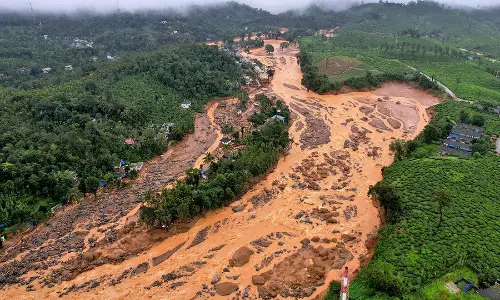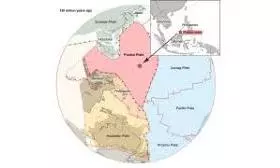
Scientists uncover ancient Pontus Plate, a 120-million-year-old tectonic remnant in Borneo
text_fieldsIn a remarkable discovery, researchers have identified a long-lost tectonic plate, known as Pontus, believed to be 120 million years old.
This ancient piece of Earth's crust, uncovered in Borneo, provides new insights into the planet's geological history.
The breakthrough came from Suzanna van de Lagemaat and Douwe van Hinsbergen of Utrecht University, who analyzed geological data from the Asia-Pacific region to confirm the existence of the Pontus plate.
"We initially thought we were dealing with relics from a known lost plate," said van de Lagemaat. "However, our magnetic lab research revealed that these rocks originated from much farther north, indicating they belonged to a previously unknown plate."
Borneo is a giant rugged island in Southeast Asia’s Malay Archipelago.
The researchers reconstructed Pontus, estimating that it once covered an area roughly one-quarter the size of the Pacific Ocean.
Formed during the era of the supercontinent Pangaea, the plate existed beneath the ocean separating Eurasia and Australia about 160 million years ago. As Pangaea fragmented, the Pontus plate was gradually subducted by surrounding plates, pushing landmasses like the Philippines and Borneo to their current positions.
Focusing on the complex Junction Region, where tectonic plates meet between Japan, the Philippines, New Guinea, and New Zealand, van de Lagemaat's research led to a stunning 3D visual reconstruction of 160 million years of tectonic plate movements.
This discovery marks a significant step in understanding Earth's dynamic geological past.























